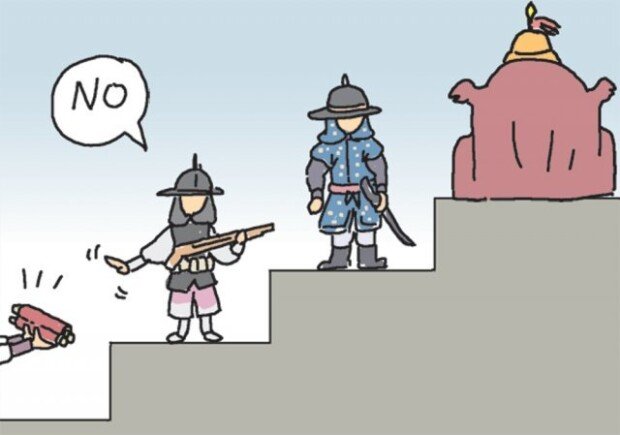Hell is full of good intensions
Hell is full of good intensions
Posted January. 26, 2021 08:24,
Updated January. 26, 2021 08:24

The Great Ming fiercely fought back as Nurhaci tried to push its forces out of Liaodong after occupying Fushun. Joseon was asked to join the war and dispatched over 10,000 soldiers to the war. The war ended with the defeat of Ming after it lost the Battle of Sarhu in 1619 and Manchuria as a result, which eventually led to its demise. Joseon forces advanced with Ming forces in the east which were under the leadership of Yu Jung. After they got defeated by Qing that killed half of Joseon’s forces, Yu Jung and his son took their own lives.
The diary of Gen. Jeong Gyeong-un from Hamyang contains accounts of Yu Jung who came to petrol the region. After talking to leaders of the region, Yu Jung emphasized that Joseon was suffering from the war and said he was cracking down on soldiers who steal or harass civilians. “No matter how strict I am, crimes will be committed where I cannot see,” he said. “Report such crimes to me, and I will tackle them to the best of my ability.”
Jeong spoke highly of Yu Jung and believed him. However, who would have dared to report? Yu Jung’s forces did not organize looting or commit crimes. They stole small objects they could take as souvenirs and took horses and cows for the war. Jeong complained but did not report.
No matter how good a leader’s intentions are, systems should be put in place and real efforts should be made in order to put them into action. Sometimes, good intentions end up doing the opposite of what they were supposed to do. Leaders should not justify their actions, citing good intentions. They abuse the word. Appealing to emotion, saying it all started with good intentions, only make things worse. A truly advanced nation does not rely on leaders who are full of good intensions but verifies the effectiveness of its systems.







